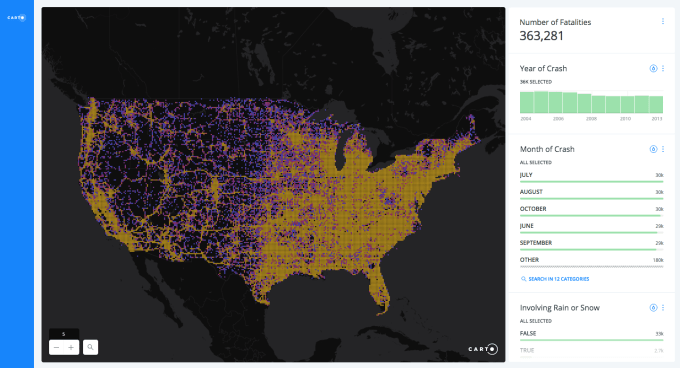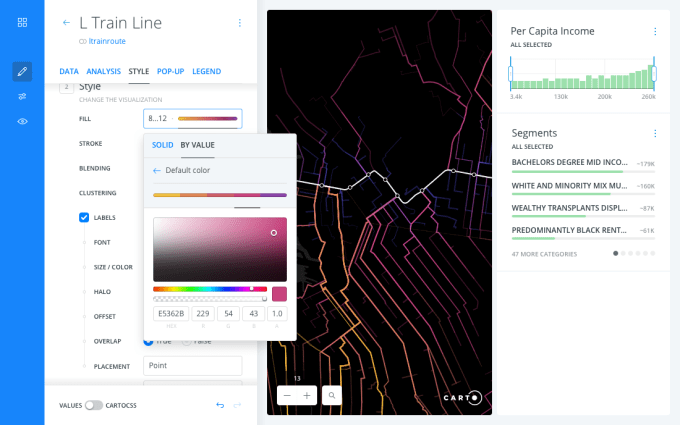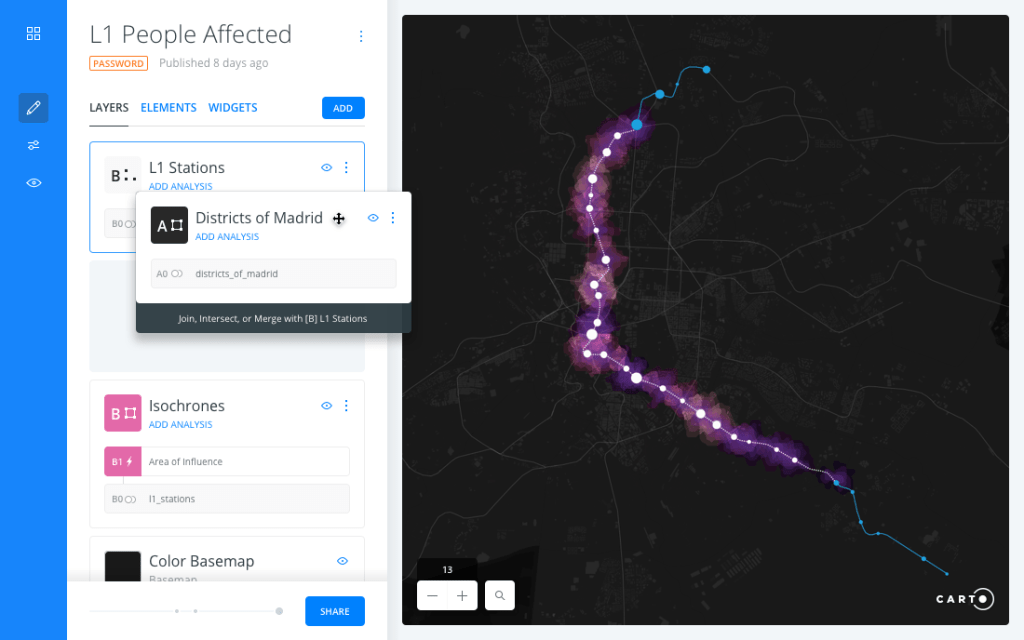CartoDB, a data visualization company founded in Madrid in 2012, changed its name to CARTO to celebrate its new analysis tool CARTO Builder and to emphasize its attempt to enlarge its audience from developers to business people and non-coders.
 Historically, CartoDB has helped data specialists with knowledge of SQL perform location data analysis. In addition, the company allowed data visualization enthusiasts (including data journalists with no coding experience) to build interactive maps from scratch. Now, the company aims at providing large organizations with a data analysis tool to help them optimize business decisions and predict consumer trends.
Historically, CartoDB has helped data specialists with knowledge of SQL perform location data analysis. In addition, the company allowed data visualization enthusiasts (including data journalists with no coding experience) to build interactive maps from scratch. Now, the company aims at providing large organizations with a data analysis tool to help them optimize business decisions and predict consumer trends.
“CARTO Builder can be used in every industry, but we are targeting financial services, to help them predict the risk of investments in specific areas, and telecom companies,” Javier de la Torre, CEO at CARTO, told TechCrunch.
CARTO Builder is a web-based drag-and-drop analysis tool that comes with a variety of data sheets from public platforms. It’s different from its previous versions because of two features: widgets and predicting functions; neither of them require knowledge of coding to be used.

Widgets allow users to obtain instant analysis of the data by focusing on one or more entries of the dataset. CARTO Builder offers four types of widgets: widgets that work on data by category (the different entries in the columns), by histogram (to show data spread out over a range), by formula (to count elements in a row) and by time series. The map colors can also be set according to the different widgets we use.
Let’s say, for example, that we’re interested in discovering the average cost of all the train accidents in the U.S. Our dataset only shows a list of all accidents, and their singular cost. All users have to do is select the right parameters in the “formula” widget, and the map instantly shows the average damage of a train accident.
“What this used to take is a lot of JavaScript,” said Jeff Ferzoco, New York City Business Development Manager at CARTO.

CARTO Builder does not require knowledge of coding nor to extrapolate patterns in the data. Expert users of CARTO Builder can still use SQL to work on their database, but non-specialists will only need to access the “Analyze and predict” section of the tool and select some parameters. In this section, users have three options: Calculate clusters of points, Detect outliers and clusters, and Predict trends and volatility.
“Thanks to CARTO Builder, a lot of work that was previously done by data scientists is now easier to do for non-data analysts,” Ferzoco said.
Getting results of an analysis of a 10,000-row database in CARTO Builder requires about one minute and 30 seconds. Analyzing a 50-million row database would probably require from 40 minutes to one hour, Ferzoco said. “But we haven’t tried, so it’s not an official number,” he pointed out.
De la Torre added that the basic version of CARTO Builder starts at $149/month. “Most organizations will use the enterprise offer, which starts at $10,000 a year,” said de la Torre.
The company said they’re planning to complete the roll out of CARTO Builder in progressive phases starting July 7.































Comment